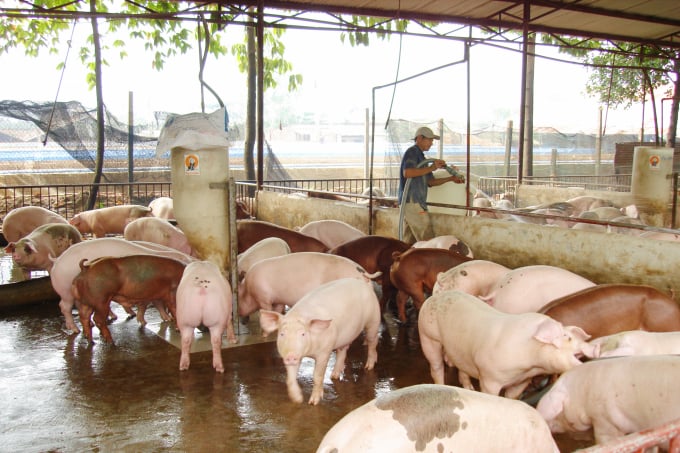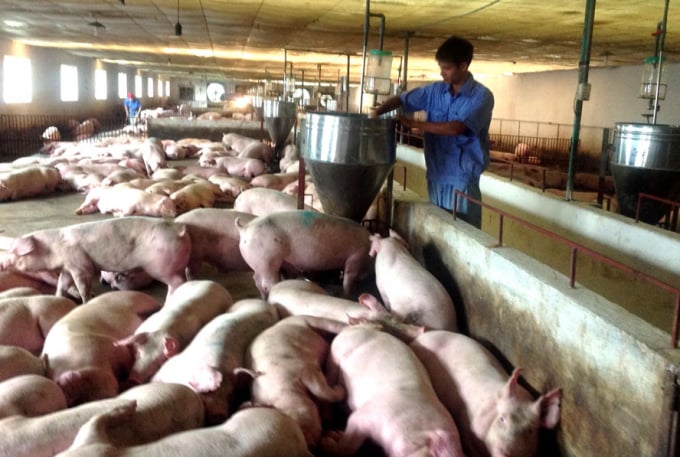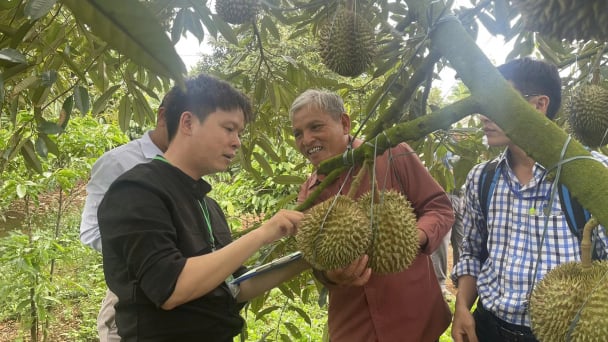May 31, 2025 | 12:05 GMT +7
May 31, 2025 | 12:05 GMT +7
Hotline: 0913.378.918
May 31, 2025 | 12:05 GMT +7
Hotline: 0913.378.918

Dong Nai still has hundreds of thousands of pigs in stock after the social distancing period. Photo: Thanh Son.
According to Mr. Nguyen Kim Doan, Vice Chairman of Dong Nai Livestock Association, although the southern provinces and cities are gradually "opening up" again, the situation of live hog consumption remains very difficult.
The amount of live hog purchased by traders is much lower than the amount of pigs that need to be released. That is because the pork consumption market in Ho Chi Minh city and the Southeast provinces is still quite low compared to before the outbreak of the 4th Covid-19 wave.
Due to difficulties after going through a prolonged social distancing period, many consumers in the region decided to reduce their consumption of pork as the retail price of many types of meat is still quite high.
The backlog of pigs continues to put great pressure on the live hog price in Dong Nai in particular and the Southeast in general. As Mr. Doan estimated, there are nearly 100,000 pigs left in the barn every month of social distancing, and after three months the backlog is approximately 300,000 pigs.
For the above reasons, the price of live hogs plummeted. The price of grade 1 live hog in livestock households in Dong Nai at the moment is only VND 39,000-40,000/kg, while fat pig price is less than VND 30,000/kg.
On the other hand, due to the high price of feed this year, plus the African swine fever prevention cost, pig rearing cost in households has reached over VND 50,000/kg.
Mr. Doan said that due to facing three “epidemics” at the same time: the Covid-19 epidemic, the in-barn “epidemic” (because of the massive backlog of pigs), and the price "epidemic", pig farmers are in quite a tragic predicament at the moment.
Mr. Nguyen Kim Doan estimated that it will take at least three more months to solve all the backlog of pigs. Mr. Le Xuan Huy, Deputy General Director of C.P. Vietnam Corporation, is more optimistic, thinking that it will take only two months to basically solve the number of pigs remaining in farms and breeding households.

Pig farmers are facing many difficulties due to facing three "epidemics". Photo: TL.
The biggest concern at present is the risk of a pork shortage crisis when due to the unbearable loss of money and the grim consumption picture, many barns had no choice but to "break the herd”.
One of the ways to “break the herd” that many farmers are doing is right after the sow gives birth, the farmer discards the piglets, keeping only the mother pig, accepting a loss of VND 5-6 million. The reason behind is that if they raise those piglets, when the time to sell has come, the loss can be up to VND 15-16 million considering the price of piglets and pigs remaining too low as it is now.
The leader of the Dong Nai Livestock Association suggested that relevant ministries and sectors should quickly step in and offer any solution to reduce the amount of imported pork in order to improve the consumption and price of domestic live hogs. If the consumption remains difficult and the price of pork is dropped too low, the risk of shifting from excess to shortage of pork is inevitable.
Translated by Samuel Pham

(VAN) For the durian industry to succeed, the value chain must fulfill its commitments to the government, the community, and international partners.

(VAN) Vaccinating juvenile pangasius helps reduce disease, antibiotic use, and farming costs, increasing profits for export-oriented farmers in An Giang.

(VAN) Due to a limited supply of workforce and competitive recruitment requirements, businesses struggle to retain talented veterinary human resources.

(VAN) WOAH’s guidance aims to mitigate disease risks through a One Health approach that balances economic, conservation, and public health interests.

(VAN) Ms. Nguyen Thi Dung, Deputy Director of Ngoc Hoang Cooperative, shared about the journey of bringing dragon fruit to Europe, achieving annual revenues in the billions of VND.

(VAN) Bamboo products from Thang Tho Bamboo Cooperative have reached many countries around the world, while also creating jobs for local workers.

(VAN) The Management Board of Con Dao National Park reported that a green sea turtle, tagged in the Philippines, has traveled thousands of kilometers to lay 84 eggs on Bay Canh Islet.